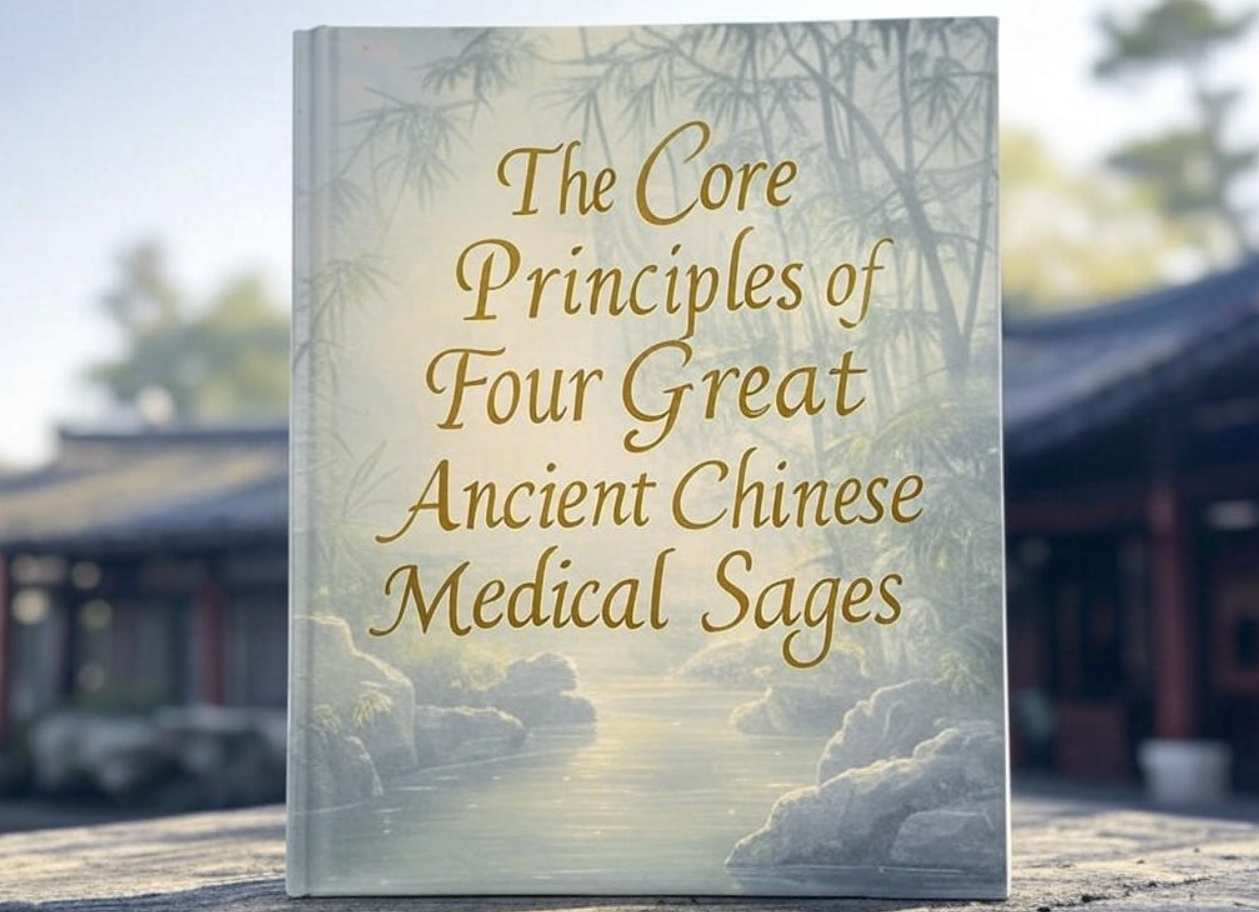Description
Book & Author Introduction: Huang Yuanyu and The Core Principles of Four Great Ancient Chinese Medical Sages
In the dynamic landscape of traditional Chinese medicine (TCM), Huang Yuanyu (1705–1758) emerges as a visionary 18th-century Qing Dynasty physician whose work bridges ancient wisdom with modern relevance. Initially destined for a bureaucratic career, a sudden hearing loss redirected his path toward TCM, inspiring a lifelong quest to decode the teachings of four foundational medical sages: the Yellow Emperor, Qi Bo, Bian Que, and Zhang Zhongjing. His magnum opus, The Core Principles of Four Great Ancient Chinese Medical Sages, distills millennia of TCM philosophy into accessible insights, making it a cornerstone for both scholars and health-conscious Western audiences.
The Author: Huang Yuanyu
Huang’s legacy lies in his ability to demystify TCM’s complex concepts through rigorous classical study and clinical practice. Unlike many contemporaries, he prioritized holistic healing over fragmented symptom management, arguing that health arises from balance between the body’s interconnected systems. His emphasis on preventive medicine and personalized diagnosis aligns with modern Western trends in integrative health, where practices like functional medicine and mind-body therapies gain traction.
Key aspects of Huang’s approach include:
- Simplification of Classics: He translated obscure texts into practical guidelines, making TCM principles understandable to lay readers.
- Clinical Innovation: His focus on herbal formulations and dietary therapy revolutionized TCM’s application, offering tangible solutions for common ailments.
- Cultural Bridge: By contextualizing TCM within universal themes like homeostasis and energy flow, he made it relatable to non-Chinese audiences.
The Book: The Core Principles of Four Great Ancient Chinese Medical Sages
Huang’s masterpiece synthesizes TCM’s foundational theories with actionable advice, addressing health seekers, practitioners, and academics alike. Here’s a deep dive into its core themes, optimized for SEO and Western relevance:
1. Holistic Body Systems & Interconnectedness
- TCM’s Organ Networks: Huang explains how organs like the liver, heart, and kidneys form interdependent systems. For example, a liver imbalance might manifest as digestive issues—a concept echoing Western studies on the gut-brain axis .
- Analogy: He compares the body to a “well-oiled machine,” where dysfunction in one part disrupts the whole. This resonates with Westerners’ growing interest in integrative medicine and systemic health.
2. Yin-Yang & Qi: Foundations of Balance
- Yin-Yang Dynamics: Huang equates this duality to homeostasis, the body’s natural equilibrium. Imbalances, he argues, lead to illness—a concept validated by modern stress research .
- Qi (Vital Energy): Described as “vital energy flow,” Qi is linked to Western concepts like mitochondrial function and metabolic pathways. Huang’s emphasis on unblocking Qi aligns with practices like acupuncture, widely used for pain management in the West .
3. Herbal Remedies & Dietary Therapy
- Evidence-Based Formulas: The book details herbal combinations for conditions like fatigue (e.g., ginseng) and inflammation (e.g., ginger), referencing functional foods and natural supplements—terms popular in Western wellness .
- Seasonal Diet: Huang advocates eating seasonal foods to harmonize with nature, a principle mirrored in Western farm-to-table movements and anti-inflammatory diets.
4. Diagnosis & Treatment Principles
- TCM Diagnostic Tools: Tongue observation, pulse reading, and symptom analysis are presented as comprehensive assessments, contrasting with Western biomedicine’s reliance on lab tests.
- Root-Cause Healing: Instead of masking symptoms, Huang prioritizes restoring balance, a philosophy akin to functional medicine’s focus on addressing underlying causes .
Relevance to Western Audiences
- Acupuncture & TCM Acceptance: As acupuncture gains mainstream use for pain and stress , Huang’s book offers insight into its theoretical roots, enhancing patient understanding.
- Herbal Safety: While cautioning against unregulated supplements , the book highlights evidence-based herbal practices, reassuring readers about TCM’s scientific basis.
- Preventive Healthcare: Huang’s emphasis on lifestyle adjustments and early intervention aligns with Western trends in preventive medicine and longevity research.

Reviews
There are no reviews yet.